Many users continue to rely on keyboard shortcuts for web browsing. Some of them like, Ctrl+F5 to clear page cache or Shift+F5 to reload the page are well known. However, if you want to be a power user, and want to add more shortcuts, add Surfingkeys to Firefox, Edge and Chrome.
Surfingkeys helps you use keyboard shortcuts to browse the web
While a mouse can move a cursor and select text, icons, files, and folders, it’s considered as a pointing device only. It’s a keyboard that is still viewed as the main input device for a computer. So, if you’re a keyboard buff and like keyboard-based navigation on the Internet, give Surfingkeys, a try. The procedure involved is simple-
- Add Surfingkeys to Chrome or Firefox browser.
- Press the Shift+? keys to display list all available keyboard shortcuts.
- Press ‘Escape’ to exit the shortcuts list page.
- Check if some shortcuts work.
If, after installing the extensions and adding it to your browser, you notice that Surfingkeys is disabled, it’s possible you’re on one of the following pages.
- Google Docs
- Chrome New page
- Google Sheets.
Choose a different page and hit the F key.
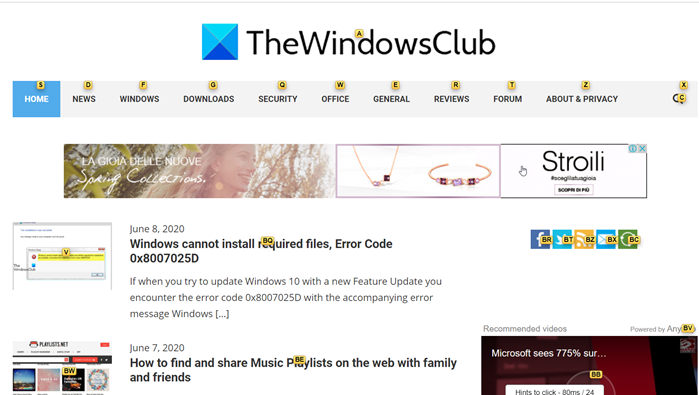
Instantly, all anchor points should be visible on the screen.
By selecting a character or group of characters, you can click the relevant links. For example,
For links,
- Press F to open a link.
- Press C to open a link in non-active new tab
- Press CF to open multiple links in a new tab
- Press GF to open a link in non-active new tab
- Press AF to open a link in new tab
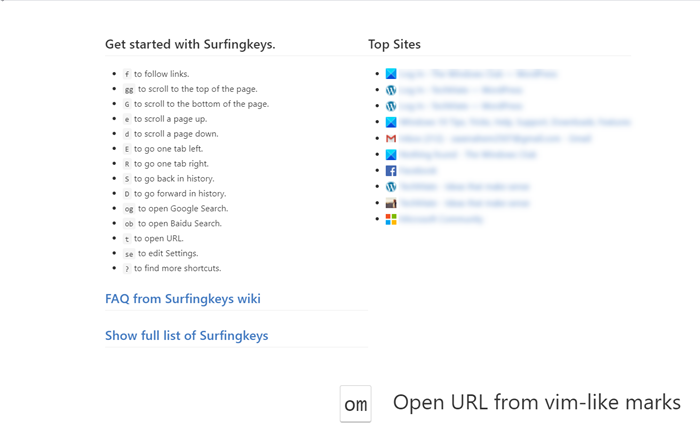
Similarly, to switch tabs,
- Press E to go one-tab left
- Press R to go one-tab right
- Press X to close the current tab
- Press X to restore the closed tab
- Press << to move the current tab to left
- Press >> to move the current tab to the right
- Press g0 to go to the first tab
- Press g$ to go to the last tab
- Press W to open a new window with the current tab
- Press J to move the current tab to left
- Press K to move current tab to the right
- Press yt to duplicate the current tab
- Press gx0 to close all tabs on left
- Press gxt to close tab on left
- Press gxT to close tab on the right
- Press gx$ to close all tabs on the right
- Press # to scroll pages / DIVs
Other shortcuts
- G – Scroll to the bottom of the page
- J – Scroll down
- K – Scroll up
- H – Scroll left
- L – Scroll right
- E – Scroll a page up
- D – Scroll a page down
- GG – Scroll to the top of the page
- $ – Scroll all the way to the right
- % – Scroll to the percentage of the current page
- CS – Reset scroll target
- CS – Change scroll target
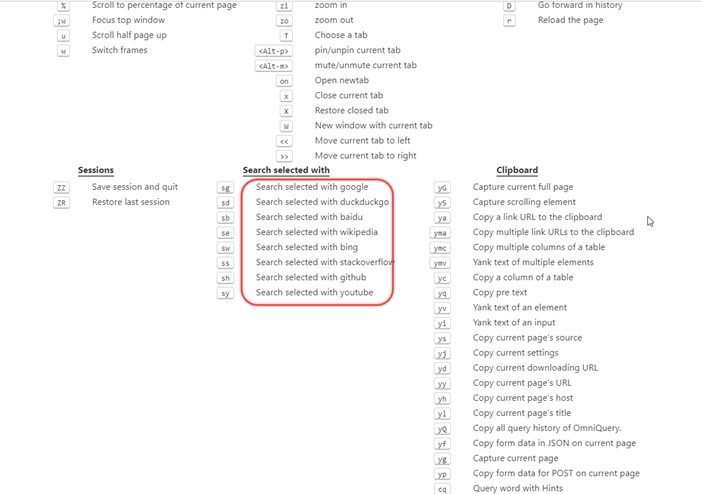
Some more additional shortcuts to search with desired search engines,
- SW – Search selected with Microsoft Bing
- SG – Search selected with Google
- SB – Search selected with Baidu
- SY – Search selected with YouTube
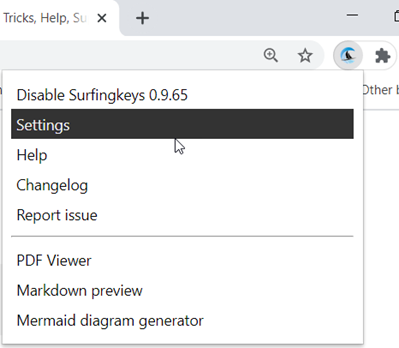
You can also write your own code snippets and assign keyboard shortcuts to execute them. For this, simply right-click the Surfingkeys icon and choose Settings.
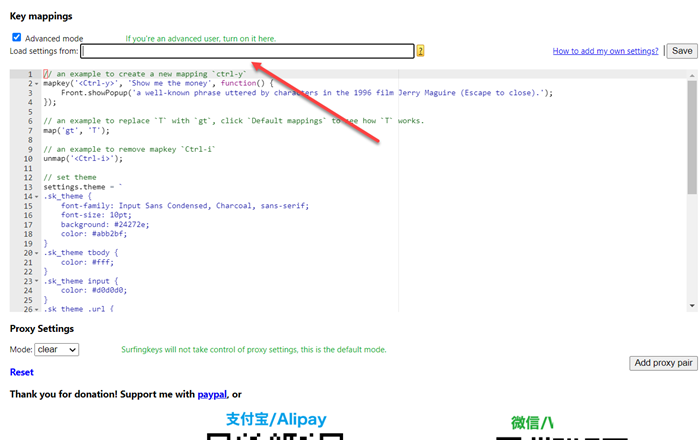
When directed to a new page – Key Mappings, check the ‘Advanced mode’ box and begin writing your own code in the text editing section.
When done, hit the ‘Esc’ to exit the anchor-point mode. The web interface should return back to its normal mode.
Kindly note, the tool has a different set of actions configured for ‘selected text’. So, if you find that Surfingkeys is not responding to the above commands, check if any text/s are selected. Deselect the content to allow Surfingkeys to respond appropriately.
Surfingkeys extension can support keyboard combinations that require pressing 2 or 3 keys.
Final words
Surfingkeys allow you to do practically anything related to the browser via your keyboard. As such, it is one of the most feature-rich and usable keyboard browsing add-ons. It’s not strictly bound by Vim legacy, but it faithfully follows vi’s idea of the mnemonic hotkey language. The only downside of using this mode is that you should have some knowledge of Javascript and HTML to do web scripting.
For more information, you can visit the Chrome Web Store or Firefox Addon page. You can use Chrome extensions on Edge, as well.